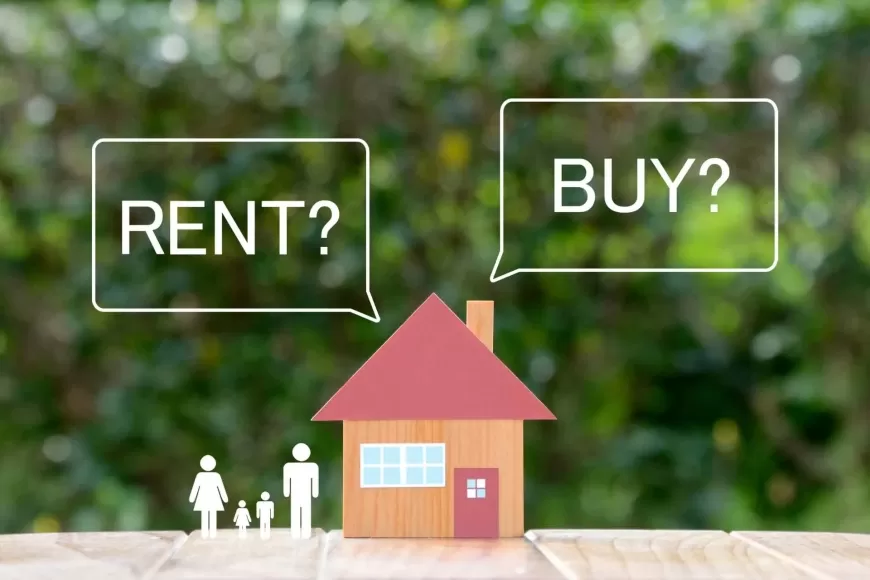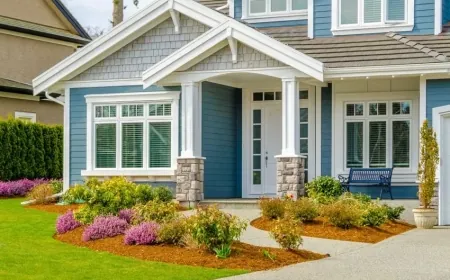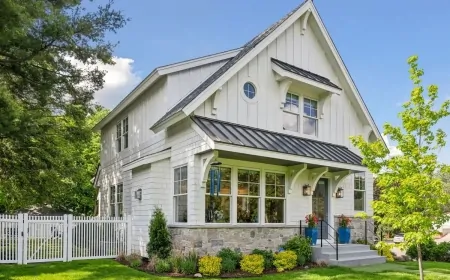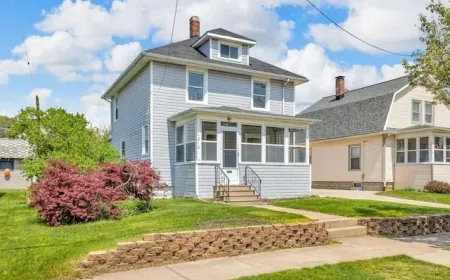Why Owning a Home is More Expensive Than Renting in United States
Homeownership in the United States is becoming increasingly expensive. Explore the factors driving the higher costs of owning a home compared to renting, from mortgage rates to home prices.

For many people, the idea of owning a home is part of the American Dream. But in today’s housing market, that dream has come with a hefty price tag. The cost of homeownership has always been higher than renting—typically about 14% more when you factor in taxes, insurance, and maintenance. However, recent trends have made the gap between owning and renting even wider. Right now, owning a home is costing about 35% more than renting, and some experts predict this gap could stick around for a while.
Rising Mortgage Rates Are a Major Factor
So why is it costing so much more to own a home today? The primary reason is the sharp increase in mortgage rates. Mortgage rates have climbed significantly in recent years, meaning people are paying much more each month for their home loans. On top of that, home prices are still high, so buyers are left juggling higher payments, rising insurance premiums, and maintenance costs.
Rick Palacios Jr., a director of research at John Burns Research and Consulting, says the cost difference between buying and renting today is unprecedented. “We’re well, well beyond what the typical historical difference is,” he explains. For many, this has led to hesitation in buying, especially when the numbers don’t add up.
Home Prices Still High, Rent Prices Stabilizing
Although homeownership is becoming increasingly expensive, renting is not exactly a bargain either. Rent prices shot up during the pandemic but have since started to stabilize thanks to more apartment construction. Nationally, rents only rose 0.2% from October 2022 to October 2023, according to Redfin, with some areas seeing bigger jumps. But still, renting remains more affordable for many people compared to the astronomical costs of owning a home.
While buying a home may seem daunting, there are still some buyers like 26-year-old Brooke Merino, who are making the leap. Merino recently bought a home in Englewood, Colorado. Even though her mortgage payment is higher than her previous rent, she believes it was the right move. “I’m at the point where I want to buy and move forward,” Merino says, explaining that the extra space and large yard for her dog made it worth the higher cost.
Renting Is a Growing Trend
More people are beginning to choose renting over buying, especially with the financial strain of homeownership. A recent survey by Fannie Mae found that 36% of Americans say their next move will be to rent rather than buy—a significant increase from just 26% three years ago. For many, renting offers the flexibility they need, especially in expensive cities where homeownership can feel out of reach.
Take Savannah West, for example. She and her partner bought a fixer-upper in Douglasville, Georgia, but found themselves spending thousands of dollars each month on repairs and improvements. Eventually, they decided to move into a loft in Atlanta and rent out their home. The new rental offers them more convenience and less financial stress. “I like being able to walk to nearby restaurants and take my daughter to city activities,” she says.
Should You Buy or Rent?
When it comes to choosing between renting or buying, the decision is personal and depends on your financial situation and lifestyle. For those in markets like Orange County, California, where homeownership can cost $4,000 to $5,000 a month, renting might be the more practical choice. But for others, buying a home might still be an attractive long-term investment, especially if you can lock in a favorable mortgage rate.
Real estate agents, like Iain Phillips, advise potential buyers to carefully consider their finances before making a decision. “You don’t want to be house-poor in this economy,” Phillips says, emphasizing that homebuyers should feel comfortable with their monthly payments and be prepared to stay in their homes for at least five years.
The Future of the Housing Market
As we look to the future, it’s likely that the housing market will continue to be challenging for both renters and buyers. While mortgage rates may drop slightly, home prices are expected to stay high, which means the premium for homeownership will likely remain elevated.
For renters, the good news is that construction of new rental units may help keep rental prices in check, at least for the time being. However, with so many factors at play—rising mortgage rates, high home prices, and the continuing demand for housing—it’s clear that the decision to buy or rent is becoming more complex than ever.
Making the Right Choice for You
At the end of the day, whether you choose to rent or buy will depend on your personal circumstances, your long-term financial goals, and your lifestyle preferences. While homeownership has its advantages, renting offers flexibility and fewer immediate financial pressures. Whatever path you choose, it’s essential to be realistic about your budget and the current housing market, and to make sure that the decision aligns with your future plans.
Also Read: New York City Bans Mandatory Broker Fees for Tenants, Shifting Costs to Landlords
































































